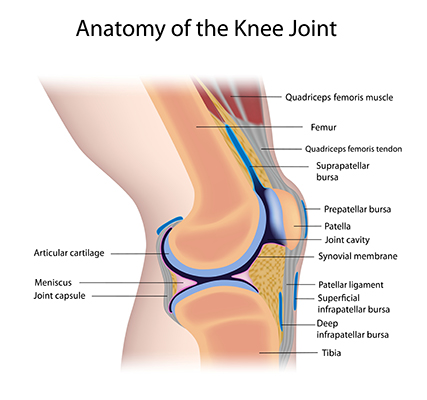I have knee pain! What to do from here – physio or imaging?
I’ve found recently there’s been an influx of knee pain injuries coming in to the clinic. Whether that be due to winter sports coming to finals time or if it’s just the flavour of the month? Hopefully this article can give you an idea of what’s the best way to manage your knee injury.
From my own experience from being a little over-zealous playing touch football as a teenager I’ve spent more than my fair share of time in orthopaedic surgeons waiting rooms and on the other side of the physio table (it’s a little more enjoyable being where I am now). When I was a teenager in country NSW, it was the physio that diagnosed my knee injury correctly and referred me onto the appropriate people to manage my injury as quickly as possible.
There are many possible structures that can be injured in your knee. View our knee pain webpage at http://www.sportandspinalphysio.com.au/injury-info/knee-pain/ to give you a basic idea of some of the most common knee injuries. Obviously, every knee pain injury is different and some will respond well to conservative management but every now and then we find that we need to send people off to get further images, most commonly MRI’s or xrays.
At Sport and Spinal Physiotherapy, we will do a thorough assessment of your knee, including special tests to assess your knee ligaments and menisci. Even if we don’t suspect a ligament or meniscal tear we still test them out and often get another physio to do the same to ensure the appropriate management.
Anterior cruciate ligament injuries
The cruciate ligaments in your knee control the translation of your thigh bone on your lower leg bone. There are 3 main clinical tests that your physiotherapist will do to assess these ligaments. They are Lachmans test, anterior drawer test and the pivot shift test. The general consensus from all the research is that if you have a positive test (particularly Lachmans test) there is an 88% chance that you have torn your ACL. Usually if you have a positive test you will need to then have an MRI to confirm. In saying that, there are a few anomalies out there. Apparently my touch football injury was obvious enough that I didn’t need an MRI and opted straight for surgery to get it repaired.
On the other hand, I recently treated a 35 year old male recently who had torn both of his ACL’s on MRI. He went in to have surgery on one of them and the ACL wasn’t torn! This was quite a rare case, but just goes to show MRI’s can be wrong too!
Medial and lateral meniscus injuries
Meniscus injuries can be a little trickier to diagnose. You can often damage your meniscus acutely (and feel pain almost instantly) or they can develop slowly over time. Again, there are 3 main tests we use to diagnose meniscus injuries. If you have one of these tests that is positive then there is approximately a 50% chance that you have damaged your meniscus. The odds go up with each positive test, with a 75 % chance with two positive tests and a 90% chance with 3. Meniscus tears, contrary to cruciate ligament tears often respond to physiotherapy treatment. Depending on where the damage is in the meniscus, it can also heal by itself. In some cases, MRI imaging may be indicated.
Degeneration and Osteoathritis
If you’re a self confessed weekend warrior or find that all those days of netball years ago are catching up to your knees, you may have some wear or tear on your knee. Sometimes this is bony (ie: the dreaded ‘arthritis’) which will show on xray but often can be clinically diagnosed as well. You can also have degenerative meniscus tears which can also be diagnosed clinically.
Summary
So to sum up, it’s definitely best to have a clinical assessment from one of our physiotherapists first to ensure you don’t go forking out elaborate amounts of money for scans that didn’t show anything- because there is a very good chance that conservative management will work for you!
To put some things in perspective, there is also some nasty knee pain injuries on youtube that are worth a look (if you like that kind of thing!). I was trying to convince myself that it was research for writing this article, and I got a bit carried away myself!
Give us a call on (02) 6262 4464 to book your knee assessment today and we will get you back on track FAST!
References:
Scholten RJPM, Opstelten W, van der Plas CG, Bijl D, Deville WLJM, Bouter LM. Accuracy of physical diagnostic tests for assessing ruptures of the anterior cruciate ligament: a meta-analysis. J Fam Pract. 2003;52:689–694.
Akseki D, Pinar H, Karaoglan O (2003) The accuracy of the clinical diagnosis of meniscal tears with or without associated anterior cruciate ligament tears. Acta Orthop Traumatol Turc 37(3):193–198
